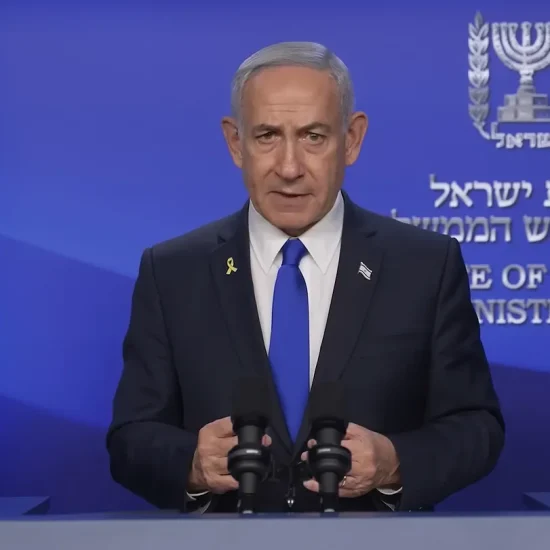

DEFENDING DEMOCRACY FROM ITS CHRISTIAN ENEMIES. By David P. Gushee. Grand Rapids, MI: Wm. B. Eerdmans Publishing Company, 2023. Xvii + 223 pages.
On January 6, 2021, a mob broke into the United States Capitol building intent on disrupting the confirmation of Joe Biden’s election as President. This took place following a Donald Trump rally not far from the Capitol. It was a violent event that caused members of Congress as well as the Vice President to flee to safety as Trump followers broke into the building. They failed in their efforts, but it was touch and go for a moment. Among those who participated in this riot were people carrying Christian flags and signs proclaiming themselves acting in the name of Jesus. Apparently, even Christian pastors were in the mob that day. While many in the crowd would call themselves Christians, in that moment they acted in service to a narcissistic President who had lost the election. The United States has always prided itself on being an exemplar of democracy, but it does seem as if democracy has begun to lose its luster as Americans, including many Christians, have decided to embrace authoritarianism. The question of the moment, with Donald Trump once again running for President and using rather authoritarian rhetoric in his speeches and social media posts, could we be facing the end of democracy in the United States?

Robert D. Cornwall
The question of the fate of American democracy has been a topic of conversation in many circles, including Christian ones. Among the Christian writers who have taken notice of current trends and addressed them is David Gushee. Gushee is a well-regarded Christian ethicist who is by tradition a Baptist, a tradition that until recently has espoused religious liberty and expressed itself in democratic forms. Currently, he is a Distinguished University Professor of Christian Ethics at Mercer University and the author of numerous books on matters of Christian ethics and contemporary concerns. In Defending Democracy from Its Christian Enemies, Gushee addresses the current nationalistic trends within white evangelicalism, even as he raises the alarm, he also offers resources to stem the tide of Christian nationalism that is threatening American democracy.
Gushee understands that no political system is perfect, but democracy is the best we have. Therefore, democracy is worth defending even if some of its enemies are Christians. Like me, he is disturbed by the support given to anti-democratic movements and the embrace of Christian nationalism present within evangelicalism. While many pundits and scholars speak of Christian nationalism, Gushee offers us a more descriptive term or phrase that seems to better capture the situation. That term is “Authoritarian Reactionary Christianity.” I like this descriptor as it is much more specific and less confusing than the term Christian nationalism. That is because many equate nationalism with patriotism. In this case, Gushee wants to emphasize authoritarianism, a characteristic we see present in figures such as Victor Orban of Hungary and Vladimir Putin. Both of these men, especially Orban, have admirers in certain sectors of the American body politic and the church as well. These authoritarian nationalist movements tend to be personality-driven, populist, and they seek power over others. It is also reactionary in that it seeks to push the nation back to an assumed earlier golden age (generally an age when white men ruled). It is committed to winning culture wars as we are seeing in this moment in the backlash against diversity and inclusion, especially of LGBTQ persons.
Before Gushee gets to this authoritarian reactionary Christianity in Chapter 2, he must first define and defend democracy, something he does in Chapter 1. He acknowledges that defining democracy is not simple since it has taken different forms throughout history. With that in mind, he has chosen to start with the definition offered by Bruce Russert of Yale University, who speaks of democracy as a political system “in which nearly everyone can vote, elections are freely contested, the chief executive is chosen by popular vote or by an elected parliament, and civil rights and civil liberties are substantially guaranteed.” (p. 8). That is a good definition, though we have yet to fully embody this definition as a nation. He points out that democracy is more than simply the rule of the people, which could be simply mob rule. That’s not what is meant here. Thus, Gushee goes into some detail in defining democracy, as a political system that requires strong values and virtuous people. Though not perfect it is the best we have. Unfortunately, this system is being challenged such that the future of democracy in America is not guaranteed.
In Chapter 2 Gushee examines the alternatives and threats to democracy, especially as they emerge out of religious movements, including American Christianity. I’ve already mentioned Christian nationalism and Gushee’s more descriptive “Authoritarian Reactionary Christianity” as dangers to democracy. He explores in this chapter the reasons why authoritarianism has returned and is threatening democracy. He dives deeper into defining “Authoritarian Reactionary Christianity,” his preferred descriptor, in Chapter 3, pointing out how culture wars and reactions to immigration and LGBTQ inclusion, have galvanized certain segments of the population who believe that Christianity is losing its hold on the nation. He writes, perhaps prophetically, that “Nearly one-fourth of the way through the twenty-first century, tens of millions of Christians are attempting to bend the arc of history backward, attempting a religious counterrevolution to the secular revolutions that they cannot accept and by which feel threatened” (p. 58).
In Chapter 4, Gushee contrasts the secular revolutions of the 20th century and the current religious counterrevolution. He follows here the work of political philosopher Michael Walzer. Gushee points us to the case of the secular Zionist movement that led to the founding of Israel and the religious movements that have taken the lead in Israel. He includes in the discussion the apocalyptic element that helps drive Christian nationalism in this conversation. With that as the foundation, Gushee moves to current trends in the USA and elsewhere, that are seeing similar religious reactions. David writes that he believes it is reasonable to “suggest that the perceived secular revolutions(s) of the 1960s finally created the motivation necessary for the United States to have its first experience of an organized religious (mainly Christian) counterrevolution.” (p. 70). That counterrevolution is threatening American democracy, such that an institution that many had assumed was stable and unsusceptible to collapse is now showing signs that this could be a possibility.
Having raised the question of secular revolutions and religious counterrevolution, Gushee spends the next six chapters taking note of reactionary political movements that sought to sweep aside secular states. He begins with France in the period from 1870 to 1944 (chapter 5) and then moves to what he calls “The Politics of Cultural Despair in Germany, 1853-1933,” a political period that gave way to Hitler’s Nazi movement in 1933. Many of the seeds of Hitler’s movement were planted during this period, including anti-Jewish sentiment. Part of this reaction is the emergence of a “corrupted, quasi-Christian nationalist religion” that bears “little resemblance to Jesus or historic Christian moral political norms.” (p. 195). From there we move to Chapter 7 and “Authoritarian Reactionary Christianity in Putin’s Russia.” As we watch the war between Russia and Ukraine, we’ve seen authoritarian reactionary Christianity on full display as Putin has made common cause with the Russian Orthodox Patriarch, couching the war in religious terms.
Although not nearly as reactionary as Russia, chapter 8 lifts up the situation in Poland, where politicians had sought to align with the Roman Catholic Church in ways that have degraded Poland’s democracy (though a recent election seems to have stemmed this trend for the moment). More disconcerting is Victor Orban’s Hungary (Chapter 9), as Orban has essentially established one-man rule rooted in reactionary Christianity. His motto is “illiberal democracy.” This is an important chapter because Orban has become a hero to many on the American Right, with Donald Trump and many GOP leaders idolizing him. Tucker Carlson has broadcast from Hungary and conservative movements have held conventions there. Orban’s Hungary has become the model for what some would like to see happen in the United States. Chapter 10 takes note of the former President of Brazil, who embraced a similar version of authoritarian reactionary Christianity. Although he lost re-election, like Trump he rejected the results of the election.
The situations discussed in chapters 5 through 10, lead to a discussion of “Authoritarian Reactionary Christianity in Trump’s United States.” While neither David Gushee nor I see Trump as a true believer in his reactionary message, he has galvanized a significant portion of the electorate who are true believers. Some even speak in messianic terms. They serve as Trump’s enablers. One of the dimensions of this movement is an attempt being made even by members of Congress to contrast democracy with a republic. We’re told by some that we’re not really a democracy, which those taking this position equates with mob rule, Instead, we are a republic, a representative government. The message here is that the majority don’t really have a say, so voting rights are not a major concern. These are views espoused by the current Speaker of the House along with other Republicans from across the country. While the Constitution speaks of the United States as being a republic, the distinction being made between the two is not a legitimate effort.
After Gushee offers definitions and explores various purveyors of ‘authoritarian reactionary Christianity,” he turns to the resources available to us. He’s especially keen on sharing religious resources that can help us turn the tide. Gushee devotes several chapters to laying out the various resources available to us. He begins in Chapter 12 by describing “The Baptist Democratic Tradition,” drawing in large part on the work of his mentor Glen Stassen. He lays out how Baptists embraced democratic principles and expressed an allergy toward authoritarianism. Secondly, he points to the Black Christian Democratic Tradition (Chapter 13). He points to slavery as America’s Original Sin, such that the voice of the African American Christian Community needs to be heard since “authoritarian reactionary Christianity” here and abroad is wrapped up in white racism, even if many, if not most, white folks don’t see this reality. The Black struggle for equality can serve as inspiration to movements seeking true equality.
The third element may seem surprising to some because you might think that the Enlightenment movements of the late sixteenth century would be the key to restoring democratic principles, but Gushee finds that Lockean democracy has lost steam. However, in Chapter 14 he points us to the covenantal vision that the early Puritans developed. While he recognizes the baggage the Puritans carry, the concept of covenant could be quite useful in renewing democracy in America. He notes that covenant relationships understood that God served as the witness and guarantor. He points out that democracy requires “covenant fidelity.” That is because our citizenship, at least theoretically, is not based on blood lineage, but on allegiance. This is a fascinating idea, that renewal begins by reclaiming covenant language and ideas. With that in mind, Gushee writes that “we can renew our commitment to the political, civil, social, and economic rights of our fellow citizens, as an expression of our recognition of how much God loves and values all people” (p. 189).
Now, you might think that Gushee is suggesting that the renewal of democracy requires Christian theological concepts. In a way, he is, but not in a way that imposes Christianity on others. What he is suggesting here is a way for Christians to reengage with the political system, while embracing democracy and pluralism by drawing on Christian traditions that support democracy. As he draws the book to a close he quotes from Reinhold Niebuhr, who was writing during the Cold War as to the value of democracy, but recognizing that it is not the final word:
Democracy cannot be the final end of life . . .. It is a form of human society, and man is only partly fulfilled in his social relations. Ultimately each individual faces not society but God as his judge and redeemer. … Democracy is certainly a better form of society than totalitarianism. But many proponents of it share one mistake of communists at least: they know of no other dimension of existence except the social one. (p. 190).
In defending Democracy, Gushee like Niebuhr, recognizes that it is the form of government available to us, even when it doesn’t work well, but it’s not the end of life, for that would be “eternal communion with God” (p. 191).
David Gushee writes this book out of concern for our current situation both within the larger country and in the church. While he points out the challenges, he also offers a word of hope at a time when many are feeling discouraged and even fearful as to the current situation. One path of hope is finding resources within our traditions that can help us resist the threat and bring redemption to the land. To help us with this effort, a set of discussion questions is found at the end of the book, making this useful for congregational study. At the end of the day, we can be thankful for the work of scholars like David Gushee who are willing and able to bring their scholarship to bear on the practical concerns of the time. So, please read Defending Democracy from Its Christian Enemies closely, especially if you are a Christian, so that you may engage the social-political and religious world with open eyes and open hearts — something that Christians ought to embrace.
You can learn more about this book by listening to an interview with David Gushee on our Dangerous Dogma podcast:
This review originally appeared on BobCornwall.com.
Robert D. Cornwall is an ordained minister in the Christian Church (Disciples of Christ). Now retired from his ministry at Central Woodward Christian Church (Disciples of Christ) of Troy, Michigan, he serves as Minister-at-Large in Troy. He holds a Ph.D. in Historical Theology from Fuller Theological Seminary and is the author of numerous books including his latest “Second Thoughts about the Second Coming: Understanding the End Times, Our Future, and Christian Hope” coauthored with Ronald J. Allen. His blog Ponderings on a Faith Journey can be found at www.bobcornwall.com.






